Kaist
Korean

Announcements
College of Engineering Notice
-
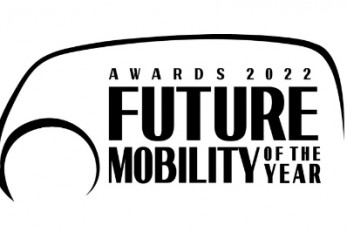
KAIST Honors BMW and Hyundai with the 2022 Future Mobility o..
BMW ‘iVision Circular’, Commercial Vehicle-Hyundai Motors ‘Trailer Drone’ selected as winners of the international awards for concept cars established by KAIST Cho Chun Shik Graduate School of Mobility to honor car makers that strive to present new visions in the field of eco-friendly design of automobiles and unmanned logistics. KAIST (President Kwang Hyung Lee) hosted the “2022 Future Mobility of the Year (FMOTY) Awards” at the Convention Hall of the BEXCO International Motor Show at Busan in the afternoon of the 14th. The Future Mobility of the Year Awards is an award ceremony that selects a model that showcases useful transportation technology and innovative service concepts for the future society among the set of concept cars exhibited at the motor show. As a one-of-a-kind international concept car awards established by KAIST's Cho Chun Shik Graduate School of Mobility (Headed by Professor Jang In-Gwon), the auto journalists from 11 countries were invited to be the jurors to select the winner. With the inaugural awards ceremony held in 2019, over the past three years, automakers from around the globe, including internationally renowned automakers, such as, Volvo/Toyota (2019), Honda/Hyundai (2020), and Renault (2021), even a new start-up car manufacturer like Canoo, the winner of last year’s award for commercial vehicles, were honored for their award-winning works. At this year’s awards ceremony, the 4th of its kind, BMW's “iVision Circular” and Hyundai's “'Trailer Drone” were selected as the best concept cars of the year, the former from the Private Mobility category and the latter from the Public & Commercial Vehicles category. The jury consisting of 16 domestic and foreign auto journalists, including BBC Top Gear's Paul Horrell and Car Magazine’s Georg Kacher, evaluated 53 concept car contestants that made their entry last year. The jurors’ general comment was that while the trend of the global automobile market flowing fast towards electric vehicles, this year's award-winning works presented a new vision in the field of eco-friendly design and unmanned logistics. Private Mobility Categry Winner: BMW iVision Circular BMW's 'iVision Circular', the winner of the Private Mobility category, is an eco-friendly compact car in which all parts of the vehicle are designed with recycled and/or natural materials. It has received favorable reviews for its in-depth implementation of the concept of a futuristic eco-friendly car by manufacturing the tires from natural rubber and adopting a design that made recycling of its parts very easily when the car is to be disposed of. Public & Commercial Vehicles Categry Winner: Hyundai Trailer Drone Hyundai Motor Company’s “Trailer Drone”, the winner of the Public & Commercial Vehicles category, is an eco-friendly autonomous driving truck that can transport large-scale logistics from a port to a destination without a human driver while two unmanned vehicles push and drag a trailer. The concept car won supports from a large number of judges for the blueprint it presented for a groundbreaking logistics service that applied both eco-friendly hydrogen fuel cell and fully autonomous driving technology. Jurors from overseas congratulated the development team of BMW and Hyundai Motor Company via a video message for providing a new direction for the global automobile industry as it strives to transform in line with the changes in the post-pandemic era. Professor Bo-won Kim, the Vice President for Planning and Budget of KAIST, who presented the awards, said, “It is time for the K-Mobility wave to sweep over the global mobility industry.” “KAIST will lead in the various fields of mobility technologies to support global automakers,” he added. Splitting the center are KAIST Vice President Bo-Won Kim on the right, and Seong-Kwon Lee, the Deputy Mayor of the City of Busan on the left. To Kim's left is the Senior VP of BMW Asia-Pacific, Eastern Europe, Middle East, Africa, Jean-Philippe Parain, and to Lee's Right is Sangyup Lee, the Head of Hyundai Motor Design Center and the Executive VP of Hyundai Motors. At the ceremony, along with KAIST officials, including Vice President Bo-Won Kim and Professor In-Gwon Jang, the Head of Cho Chun Shik Graduate School of Mobility, are the Deputy Mayor Seong-Kwon Lee of the City of Busan and the figures from the automobile industry, including Jean-Philippe Parain, the Senior Vice President of BMW Asia-Pacific, Eastern Europe, Middle East, Africa, who is visiting Korea to receive the '2022 Future Mobility' award, and Sangyup Lee, the Head of Hyundai Motor Design Center and the Executive Vice President of Hyundai Motor Company, were in the attendance. More information about the awards ceremony and winning works are available at the official website of this year's Future Mobility Awards (www.fmoty.org). Profile: In-Gwon Jang, Ph.D. President the Organizing Committee the Future Mobility of the Year Awards http://www.fmoty.org/ Head Professor KAIST Cho Chun Shik Graduate School of Mobility https://gt.kaist.ac.kr
-
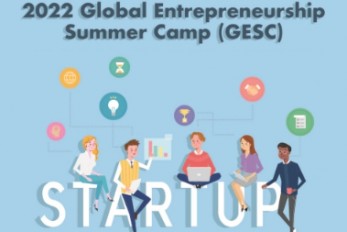
The 1st Global Entrepreneurship Summer Camp bridges KAIST an..
Twenty KAIST students gave a go at selling their business ideas to investors at Silicon Valley on the “Pitch Day” at 2022 Global Entrepreneurship Summer Camp. From Tuesday, June 21 to Monday, July 4, 2022, KAIST held the first Global Entrepreneurship Summer Camp (GESC). The 2022 GESC, which was organized in collaboration with Stanford Technology Ventures Program (STVP), KOTRA Silicon Valley IT Center, and KAIST Alumni at Silicon Valley, was a pilot program that offered opportunities of experiencing and learning about the cases of startup companies in Silicon Valley and a chance to expand businesses to Silicon Valley through networking. Twenty KAIST students, including pre-startup entrepreneurs and students interested in global entrepreneurship with less than one year of business experience were selected. The first week of the program was organized by Startup KAIST while the second week program was organized by the Center for Global Strategies and Planning (GSP) at KAIST in collaboration with the Stanford Technology Venture Program (STVP), KAIST Alumni at Silicon Valley, and KOTRA at Silicon Valley. Dr. Mo-Yun Lei Fong, the Executive Director of STVP, said, “The program offered an opportunity for us to realize our vision of empowering aspiring entrepreneurs to become global citizens who create and scale responsible innovation. By collaborating with KAIST and offering entrepreneurial insights to Korean students, we are able to have a positive impact on a global scale.” Mo added, “The program also enabled STVP to build bridges, learn from the students, and refine our culturally relevant curriculum by understanding Korean culture and ideas.” On the “Pitch Day” on July 1, following a special talk by Dr. Chong-Moon Lee, the Chairman of AmBex Venture Partners, the students presented their team business ideas such as an AI-assisted, noise-canceling pillow devised for better sleep, a metaverse dating application, an XR virtual conferencing system, and an AI language tutoring application to the entice global investors’ curiosity. The invited investors, majorly based in Silicon Valley, commented that all the presentation was very exciting, and the level of pitches was beyond the expectation considering that the students have given only two weeks. Ms. Seunghee Lee of the team “Bored KAIST Yacht Club”, which was awarded the first prize, explained, “our item, called ‘Meta-Everland’, is a service that offers real-time dating experiences similar to off-line dates. The GESC taught me that anybody can launch a startup as long as they are willing. Developing a business model from ideation and taking it to the actual pitching was challenging, but it was a very thrilling experience at the same time.” Lee added, “Most importantly, over the course of the program and the final pitch, I found out that an interesting idea can attract investors interest even at a very early stage of the launching.” Mr. Byunghoon Hwang, a student who attended the program said, “Having learned the thoughts and attitudes the people at the front line of Silicon Valley, my views on career and launching of a start-up have been expanded a lot.” Ms. Marina Mondragon, another attendee at the program, also said that the program was very meaningful because she was able to learn the difference between the ecosystem for the new start-up businesses at Korea and at Silicon Valley through her talks with the CEOs at Silicon Valley. The program was co-organized by the Center for Global Strategies and Planning at KAIST International Office and Startup of KAIST. Dr. Man-Sung Yim, the Associate Vice President for KAIST International Office, who guided students in Silicon Valley, said, “I believe the GESC program broadened the views and entrepreneurial mindset of students. After joining this program, students stepped forward to become a founder of startups.” In addition, Dr. Young-Tae Kim, the Associate Vice President of the Institute for Startup KAIST, addressed “Startup KAIST will support business items founded via the program through various other programs in order to enhance their competitiveness in the global market.” The GSP and Startup KAIST will continuously revamp the program by selecting distinguished fellows to join the program and coming up with innovative startup items. Profile: Sooa Lee, Ph.D. Research Assistant Professor slee900@kaist.ac.kr Center for Global Strategies and Planning Office of Global Initiatives KAIST International Office https://io.kaist.ac.kr Korea Advanced Institute of Science and Technology (KAIST) Daejeon, Republic of Korea
-

[CoE491] 2022 Fall Smart Convergence
Fall 2022 NEW COURSES OFFERED BY THE COLLEGE ENGINEERING Class A - Smart Mobility Design for Designer, Engineer, and Data Scientist N1 #114 / 16:00~19:00 Wed Namwoo Kang (Cho Chun Shik Graduate School of Mobility) Hyunjoon Park (Dept. of Industrial Design) Lanu Kim (School of Digital Humanities and Computational Social Sciences) Class B - Smart Health Data-Driven Service Design for Health and Wellbeing N1 #422 / 14:30~17:30 Wed Uichin Lee (School of Computing) Hwajung Hong (Dept. of Industrial Design) Seok Hee Kim (School of Digital Humanities and Computational Social Sciences) Class C - Smart Energy and Environmental Technologies and Innovative Governance N1 #113 / 13:00~16:00 Tue Doh Chang Lee (Dept. of Chemical and Biomolecular Engineering) Kyung Ryul Park (Graduate School of Science and Technology Policy) Hyungjun Kim (Moon Soul Graduate School of Future Strategy) Class D - Smart Factory for Human-Machine Collaboration N1 #114 / 16:00~19:00 Tue Young Jae Jang (Dept. of Industrial & Systems Engineering) Sanha Kim (Dept. of Mechanical Engineering) Hana Kim (School of Digital Humanities and Computational Social Sciences)
-
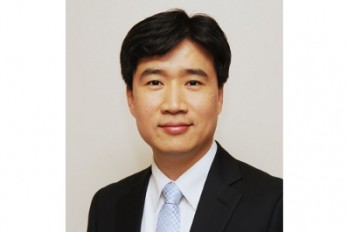
2022 KAIST Research Day Recognizes 10 Outstanding Researches
< Professor Il-Doo Kim the grand prize awardee of the 2022 Research Day gives a special lecture during the Research Day ceremony. > On May 31, the 2022 KAIST Research Day was held at the Jeongo Geun-mo Conference Hall at KAIST’s main campus. Since 2016, Research Day has been a yearly festival for researchers at KAIST. By introducing major research achievements and providing opportunities for information exchanges in R&D, it aims to create an atmosphere for mutual cooperation and communication amongst researchers, thereby vitalizing interdisciplinary research. At this year’s event, 10 faculty members and their representative research achievements were rewarded. As the winner of the Grand Prize for Research, Professor Il-Doo Kim (Department of Materials Science and Engineering) gave a lecture on his topic, “Ultrasensitive flexible chemical sensor”. With rising attention being given to environmental safety and healthcare, the importance of mobile sensors for trace amounts of molecules that can quickly raise hazard signals and allow early diagnosis from breath analysis have been brought to light. The lecture will break down ultrasensitive chemical sensor development cases, and introduced how gas sensor technologies developed at KAIST in particular are being applied at semiconductor and display fabrication plants for environmental and safety analyses and hazard prevention. Professor Il-Doo Kim is a recognized researcher for his inventive achievements in the fields of respiratory gas sensor technology for early disease monitoring, and ordered nanofiber membranes for antiviral and fine dust filters. Professor Kim has so far published 343 international research papers, received 56 journal covers, been awarded 230 domestic and international patents, and completed 12 technology transfers. He has also received a presidential award on the 51st invention day in 2016, Scientist of the Year Award selected by reporters in 2019, and has been named a fellow in the engineering division of the Korean Academy of Science and Technology in 2022. Professor Kwang-Hyun Cho at the Department of Bio and Brain Engineering and Professor Doh Chang Lee at the Department of Chemical and Biomolecular Engineering were each awarded the Research Award, and Professor Dongsoo Han at the School of Computing received the Innovation Award. Professors Buhm Soon Park at the Graduate School of Science and Technology Policy, Changick Kim at the School of Electrical Engineering and Hyun Jung Cho at the School of Digital Humanities and Computational Social Sciences received the Interdisciplinary Research Award as a team. The passion and experiences of the awardees are to be introduced to undergraduate and graduate students as well as fellow researchers through a pre-recorded video lecture, while the lecture of the winner of the grand prize will be delivered on site. Meanwhile, the top ten R&D achievements of KAIST selected excellent research outcomes from the natural and biological sciences including “Polariton-based PT symmetry laser that turns loss into gain” (Professor Yong-Hoon Cho at the Department of Physics), “Solution to the Riemann Problem including weak shock waves in 1-dimensional space” (Professor Moon-Jin Kang at the Department of Mathematical Sciences), and “Characterization of immune reaction in COVID-19 patients” (Professor Eui-Cheol Shin at the Graduate School of Medical Science and Engineering.) Awardees from the engineering field included “Fluid surface stabilization technology using plasma jet” (Professor Wonho Choe at the Department of Nuclear and Quantum Engineering, “Visual recognition technology using event-based cameras” (Professor Kuk-Jin Yoon at theDepartment of Mechanical Engineering, “Artificial sensory system development through neural signal mimicry” (Professor Seongjun Park at the Department of Bio and Brain Engineering, “Mott transition material-based ultrahigh speed, low-power, and deformation-resistant true random number generator” (Professor Kyung Min Kim at the Department of Materials Science and Engineering, “Investment service design based on Aline: ESG” (Professor Sangsu Lee at the Department of Industrial Design), “Structural color printing technology without chemical colorings” (Professor Shin-Hyun Kim at the Department of Chemical and Biomolecular Engineering), and “Differentiable transient optical transfer simulation” (Professor Minhyuk Kim at the School of Computing) To encourage the participation of members of KAIST, all parts of the ceremony will be broadcast live through YouTube in both English and Korean.” He added, “Offline audiences will congratulate the awardees at Fusion Hall in the KI Building and gain research ideas.”
-
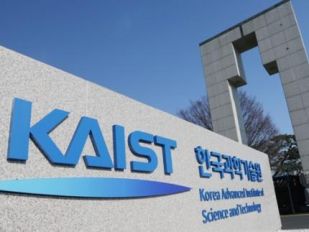
Anonymous Donor Makes a Gift of Property Valued at 30 Billio..
< An anonymous donor in his 50s made a gift of real estate valued at 300 billion KRW. This is the first donation from an anonymous benefactor on such a grand scale. > The KAIST Development Foundation announced on May 9 that an anonymous donor in his 50s made a gift of real estate valued at 30 billion KRW. This is the first donation from an anonymous benefactor on such a grand scale. The benefactor expressed his wishes to fund scholarships for students in need and R&D for medical and bio sciences. According to the Development Foundation official, the benefactor is reported to have said that he felt burdened that he earned much more than he needed and was looking for the right way to share his assets. The benefactor refused to hold an official donation ceremony and meeting with high-level university administrators. The donor believes that KAIST is filled with young and dynamic energy, saying, “I would like to help KAIST move forward and create breakthroughs that will benefit the nation as well as all humanity.” Before making up his mind to give his asset to KAIST, he had planned to establish his own social foundation but he changed his mind. “I decided that an investment in education would be the best investment,” he said. He explained that he was inspired by his KAIST graduate friend who is running a company. He was deeply motivated to help KAIST after witnessing the KAIST graduate’s passion for conducting his business. After receiving the gift, KAIST President Kwang Hyung Lee was thankful for the full support and trust of the benefactor. “We will spare no effort to foster next-generation talents and advance science and technology in the field of biomedicine.”
-
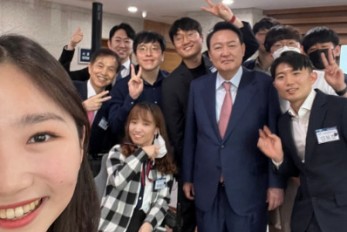
President-Elect Suk-Yeol Yoon Meets and Talks with KAIST Stu..
President-Elect Yoon stresses science and technology-powered economic growth during his visit to KAIST < President-elect Yoon poses with KAIST students on April 29 during his visit to KAIST. > Korean President-elect Suk-Yeol Yoon stressed that semiconductors are the key strategical industry that will take the lead during the fourth industrial revolution powered by AI and data during a meeting with KAIST graduate students on April 29. President-elect Yoon promised systemic policy support for making science and technology breakthroughs possible and better rewarding young researchers who are devoted to advances in R&D during his meeting at KAIST. Before he met with the students, he toured the National Nanofab Center, which is affiliated with KAIST, and was briefed on the center’s role and responsibilities. President-elect Yoon, who will take office on May 10, said that the best way to ensure prompt growth in Korea’s aging society hinges on advances in science and technology. “All-out investments in science and technology will help us move forward to improve people’s quality of life and lessen the social divide,” he explained. Eight Master’s and PhD candidates majoring in nuclear engineering, AI robotics, semiconductors, electrical engineering, aerospace, and bioengineering attended the meeting with President-elect Yoon. The students asked for help dealing with the challenges they are experiencing while researching and called for deregulation in the process of forming startups. PhD candidate Jae Wan Cho from the Department Nuclear and Quantum Engineering stressed the importance of energy security. He asked for the prompt development of new types of nuclear reactors such as small modular reactors, adding, “Korea has very excellent technologies in nuclear plant construction and parts manufacturing, but lags behind in the new types of nuclear reactors. This sector will develop new energy markets and create synergy along with the shipbuilding industry, which will emerge as new pillars of our export.” Student entrepreneurs such as PhD candidate Kwang Min Kim from the Department of Bio and Brain Engineering and PhD candidate Dong Yoon Shin from the Department of Mechanical and Aerospace Engineering asked for more deregulation in the process of creating startups. PhD candidate Dong Hon Lee from the School of Electrical Engineering pointed out the insecure future caused by the ‘special research fellow system,’ where the number of fellows who have been designated alternative military service has drastically decreased. < Before he met with the students, he toured the National Nanofab Center, which is affiliated with KAIST >
-
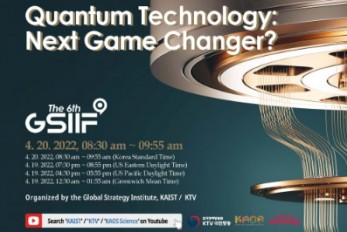
Quantum Technology: the Next Game Changer?
The 6th KAIST Global Strategy Institute Forum explores how quantum technology has evolved into a new growth engine for the future < From left: Professor John Preskill from Caltech, Dr. Jerry M. Chow from IBM, and Professor Jungsang Kim from Duke University > The participants of the 6th KAIST Global Strategy Institute (GSI) Forum on April 20 agreed that the emerging technology of quantum computing will be a game changer of the future. As KAIST President Kwang Hyung Lee said in his opening remarks, the future is quantum and that future is rapidly approaching. Keynote speakers and panelists presented their insights on the disruptive innovations we are already experiencing. The three keynote speakers included Dr. Jerry M. Chow, IBM fellow and director of quantum infrastructure, Professor John Preskill from Caltech, and Professor Jungsang Kim from Duke University. They discussed the academic impact and industrial applications of quantum technology, and its prospects for the future. Dr. Chow leads IBM Quantum’s hardware system development efforts, focusing on research and system deployment. Professor Preskill is one of the leading quantum information science and quantum computation scholars. He coined the term “quantum supremacy.” Professor Kim is the co-founder and CTO of IonQ Inc., which develops general-purpose trapped ion quantum computers and software to generate, optimize, and execute quantum circuits. Two leading quantum scholars from KAIST, Professor June-Koo Kevin Rhee and Professor Youngik Sohn, and Professor Andreas Heinrich from the IBS Center for Quantum Nanoscience also participated in the forum as panelists. Professor Rhee is the founder of the nation’s first quantum computing software company and leads the AI Quantum Computing IT Research Center at KAIST. During the panel session, Professor Rhee said that although it is undeniable the quantum computing will be a game changer, there are several challenges. For instance, the first actual quantum computer is NISQ (Noisy intermediate-scale quantum era), which is still incomplete. However, it is expected to outperform a supercomputer. Until then, it is important to advance the accuracy of quantum computation in order to offer super computation speeds. Professor Sohn, who worked at PsiQuantum, detailed how quantum computers will affect our society. He said that PsiQuantum is developing silicon photonics that will control photons. We can’t begin to imagine how silicon photonics will transform our society. Things will change slowly but the scale would be massive. The keynote speakers presented how quantum cryptography communications and its sensing technology will serve as disruptive innovations. Dr. Chow stressed that to realize the potential growth and innovation, additional R&D is needed. More research groups and scholars should be nurtured. Only then will the rich R&D resources be able to create breakthroughs in quantum-related industries. Lastly, the commercialization of quantum computing must be advanced, which will enable the provision of diverse services. In addition, more technological and industrial infrastructure must be built to better accommodate quantum computing. Professor Preskill believes that quantum computing will benefit humanity. He cited two basic reasons for his optimistic prediction: quantum complexity and quantum error corrections. He explained why quantum computing is so powerful: quantum computer can easily solve the problems classically considered difficult, such as factorization. In addition, quantum computer has the potential to efficiently simulate all of the physical processes taking place in nature. Despite such dramatic advantages, why does it seem so difficult? Professor Preskill believes this is because we want qubits (quantum bits or ‘qubits’ are the basic unit of quantum information) to interact very strongly with each other. Because computations can fail, we don’t want qubits to interact with the environment unless we can control and predict them. As for quantum computing in the NISQ era, he said that NISQ will be an exciting tool for exploring physics. Professor Preskill does not believe that NISQ will change the world alone, rather it is a step forward toward more powerful quantum technologies in the future. He added that a potentially transformable, scalable quantum computer could still be decades away. Professor Preskill said that a large number of qubits, higher accuracy, and better quality will require a significant investment. He said if we expand with better ideas, we can make a better system. In the longer term, quantum technology will bring significant benefits to the technological sectors and society in the fields of materials, physics, chemistry, and energy production. Professor Kim from Duke University presented on the practical applications of quantum computing, especially in the startup environment. He said that although there is no right answer for the early applications of quantum computing, developing new approaches to solve difficult problems and raising the accessibility of the technology will be important for ensuring the growth of technology-based startups.
-
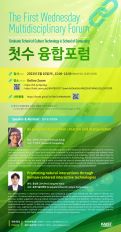
The First Wednesday Multidisciplinary Forum, Mar 10th(Thu)
3월 첫수융합포럼 안내 (전산학부 & 문화기술대학원) The First Wednesday Multidisciplinary Forum, March 2022 일시(Date) : March 10(Thu.) 2022, 12:00~13:00 장소(Zoom) : https://bit.ly/3pe4iqa 사전등록(Preregistration) : https://forms.gle/qTSm7Wc2hfeWvMw96 설문지(Questionnaire) : https://forms.gle/kN1a5D2btexnPf6f9 연사(Speaker) 성민혁 교수 (Prof. Minhyuk Sung) | 전산학부 (School of Computing) | https://mhsung.github.io/ 윤상호 교수 (Prof. Sang Ho Yoon) | 문화기술대학원 (Graduate School of Culture Technology) | https://hcitech.org ※ 본 강연은 영어로 진행되며, 참석하시는 분들께는 추첨을 통하여 소정의 선물을 드립니다. The lecture will be given in English and small gifts will be provided to the participant.
-
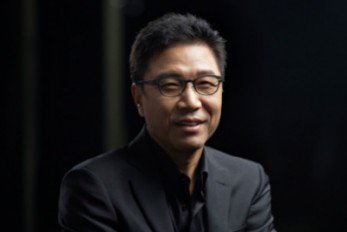
SM CEP Soo-Man Lee to Teach at the KAIST School of Computing..
< The Founder and Chief Executive Producer of SM Entertainment Soo-Man > The Founder and Chief Executive Producer of SM Entertainment Soo-Man Lee was appointed as a distinguished visiting professor in the KAIST School of Computing. His three-year term starts on March 1. KAIST and the SM Entertainment signed an MOU on joint research on the metaverse last year and Lee’s appointment is the extension of their mutual collaborations in fields where technologies converge and will encourage innovative advancements in engineering technology and the entertainment industry. Lee, who completed a graduate program in computer science at California State University Northridge will give special leadership lectures for both undergraduate and graduate students, and will participate in metaverse-related research as a consultant. In particular, Professor Lee will participate in joint research with the tentatively named Metaverse Institute affiliated with the KAIST Institute for Artificial Intelligence. The institute will help SM Entertainment stay ahead of the global metaverse market by using the avatars of celebrities, and lend itself to raising the already strong brand power of the K-pop leader. Professor Lee said, “I am grateful that KAIST, the very cradle of Korea’s science and technology, has given me the opportunity to meet its students as a visiting professor. We will lead the metaverse world, in which Korea is emerging as a market leader, with the excellent contents and technology unique to our country, and work together to lead the future global entertainment market.” President Kwang-Hyung Lee said, “The ability to expand our limitless creativity in the metaverse is indispensable for us as we adapt to this new era. We hope that the vision and creative insights of Executive Producer Lee, which have allowed him to look ahead into the future of the entertainment contents market, will have a positive and fresh impact on the members of KAIST.” The global influence and reputation of Executive Producer Lee has been well established through his various awards. He was the first Korean to be listed on Variety500 for five consecutive years from 2017 to 2021. He was also the first Korean awardee of the Asia Game Changer Awards in 2016, the first cultural figure to receive the YoungSan Diplomacy Award in 2017, the only Korean to be listed on the 2020 Billboard Impact List, and he has also received the K-pop Contribution Award at the 10th Gaon Chart Music Awards. He recently introduced Play2Create (P2C), a new interactive and creative culture in which re-creation can be enjoyed like a game using IP, and is leading the establishment of the P2C ecosystem.
-
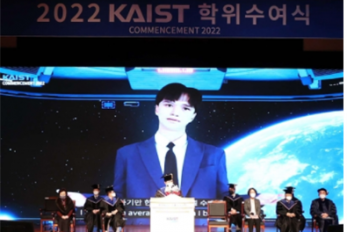
Commencement Ceremony Honors the Class of 2022
Third online commencement ceremony since the pandemic outbreak celebrates 2741 graduates < The 2022 commencement ceremony was livestreamed on KAIST’s YouTube channel on February. > The 2022 commencement ceremony convened online on February 18 to celebrate and award degrees to the Class of 2022. The graduating class of 2022 included 663 PhDs, 1,383 Masters, and 695 Bachelors. The limited number of attendees included 86 graduate representatives and approximately 20 faculty members in senior leadership, as well as Korea’s Minister of Science and ICT Hyesook Lim. The ceremony was livestreamed on KAIST’s YouTube channel. Valedictorian Ji-Young Lee from the Department of Physics received the Minister of Science and ICT’s Award. Yu-Jin Bang from the School of Business and Technology Management was the Awardee of the Chairman of the KAIST Board of Trustees and the KAIST Presidential Awardee was Jong-Hwan Lee from the Department of Mathematical Sciences. KAIST conferred honorary doctorates to Honorary Chairman Jae-Chul Kim of Dongwon Group and Chairman Sung-Hwan Chang of Samsung Brush. Chairman Kim, whose donation funded the establishment of the Kim Jae-Chul Graduate School of AI, was awarded an honorary doctorate of science technology. Chairman Chang was awarded an honorary doctorate of business administration in recognition of his funding in the fields of medical science and engineering at KAIST. < This year’s student commencement speaker, Hye-Lin Park from the School of Computing was the first student admitted to KAIST with a severe physical handicap. > This year’s undergraduate commencement speaker was Hye-Lin Park from the School of Computing. She has severe cerebral palsy and was the first student admitted to KAIST with a severe physical handicap. “I loved mathematics and wanted to become a mathematician. When I learned programming in my second year, I was so mesmerized by it that I transferred to the School of Computing,” said Park, who plans to continue studying programming languages in graduate school at KAIST. “I spent my entire life of 24 years in this beautiful wheelchair. Without the support and help of my parents, friends, and my special teachers who helped me move and study at the campus, I would not have made it this far,” said Park. For easier access to classrooms and facilities, KAIST started to remodel its facilities to make the entrance of buildings more wheelchair-friendly. Park made many suggestions to the Office of Student Life and the Facilities Management Office on how to ease mobility for handicapped people on campus. The physical education course that was required for graduation was also revised to stipulate exceptions. Minister Lim stressed the role of young scientists and researchers in these times of digital transformation dominated by AI and the metaverse. She encouraged the graduates to carry out their dreams with warm hearts and challenging spirits. KAIST President Kwang Hyung Lee also stressed the power of dreams, calling for graduates to dream big even in times of uncertainty. “Humanity stands at an inflection point in history. The fourth industrial revolution and outbreak of Covid-19 have unfolded the grand global transformation. Although the future gives us new opportunities, it also comes with anxiety regarding the uncertainties ahead.” “Dreams make your heart race and push us to live life to the fullest. Dreams will help you keep moving forward even in the face of adversity,” he said.
-

President Lee Presents Plans to Nurture Next-Generation Tale..
President Lee stressed that nurturing physician-scientists, semiconductor R&D personnel, startup entrepreneurs, and global innovators are key missions he will continue to pursue during a news conference < President Lee holds a news conference marking the 1st anniversary of him becoming the president on February 15. > KAIST President Kwang Hyung Lee said that nurturing physician-scientists, semiconductor R&D personnel, startup entrepreneurs, and global innovators are key missions he will continue to pursue during an online news conference marking the 1st anniversary of him becoming the president on February 15. He said that nurturing physician-scientists is the most critical mission for KAIST to help the nation create a new growth engine. He said KAIST will help the nation drive the bio-industry and provide medical science resources for the nation’s health sector. To this end, he said that KAIST will open its Medical Science and Technology School by 2026. “We plan to expand the current Graduate School of Medical Science and Engineering into a new Medical Science and Technology School that will focus entirely on a condensed MD-PhD course converging the fields of AI, bio, and physics,” he said. The school aims to foster MD-PhDs whose research results will eventually be commercialized. He said that the university is now discussing revisions to related laws and regulations with the government and other universities. To supply human resources to the semiconductor industry, President Lee said the university will add a campus in Pyongtaek City that will serve as an advanced convergence research hub in the field of next generation semiconductors in collaboration with Samsung Electronics and the city of Pyongtaek. The three-stage opening plan projected the final opening of the campus by 2036. During the first stage, which will be completed by 2026, it will construct the campus infrastructure in Pyongtaek city where Samsung Semiconductors runs two massive semiconductor complexes. By 2031, it plans to launch the open research platform including a future cities research center and future vehicles research center. The campus will open the global industrial collaboration cluster hub by 2036. In the global arena, President Lee said he is working to open the New York campus with stakeholders in the United States. He announced the plan last December that was endorsed by New York-based entrepreneur Hee-Nam Bae, the chairman of Big Continent Inc. President Lee and Chairman Lee signed an MOU for the funding to open the campus in New York. “We are discussing how to facilitate the plan and best accommodate the interests and potential of our students. Many ideas and plans are on the table and we think it will take longer than expected to finalize the plan,” explained President Lee. However, he added that the basic idea is to offer art tech and health technology programs as well as an AI-based finance MBA at the New York campus, in addition to it serving as the startup accelerator of KAIST. President Lee stressed the importance of technology commercialization when successfully launching KAIST Holdings last month to help spinoffs of KAIST labs accelerate their end results. He said that KAIST Holdings will build a virtuous supporting system to commercialize the technology startups coming from KAIST. “We plan to list at least 10 KAIST startups on the KOSDAQ and two on the NASDAQ by 2031. KAIST Holdings also aims to nurture companies valued at a total of one billion KRW and earn 100 billion KRW in technology fees by 2031.
-
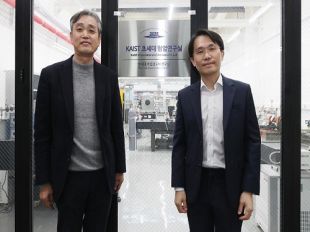
Thermal Superconductor Lab Becomes the 7th Cross-Generation ..
< Senior Professor Sung Jin Kim (left) from the Department of Mechanical Engineering will team up with Junior Professor Youngsuk Nam for the 7th Cross-Generation Collaborative Lab, the Thermal Superconductor Lab > The Thermal Superconductor Lab led by Senior Professor Sung Jin Kim from the Department of Mechanical Engineering will team up with Junior Professor Youngsuk Nam to develop next-generation superconductors. The two professor team was selected as the 7th Cross-Generation Collaborative Lab last week and will sustain the academic legacy of Professor Kim’s three decades of research on superconductors. The team will continue to develop thin, next-generation superconductors that carry super thermal conductivity using phase transition control technology and thin film packaging. Thin-filmed, next-generation superconductors can be used in various high-temperature flexible electronic devices. The superconductors built inside of the semiconductor device packages will also be used for managing the low-powered but high-performance temperatures of semiconductor and electronic equipment. Professor Kim said, “I am very pleased that my research, know-how, and knowledge from over 30 years of work will continue through the Cross-Generation Collaborative Lab system with Professor Nam. We will spare no effort to advance superconductor technology and play a part in KAIST leading global technology fields.” Junior Professor Nam also stressed that the team is excited to continue its research on crucial technology for managing the temperatures of semiconductors and other electronic equipment. KAIST started this innovative research system in 2018, and in 2021 it established the steering committee to select new labs based on: originality, differentiation, and excellence; academic, social, economic impact; the urgency of cross-generation research; the senior professor’s academic excellence and international reputation; and the senior professor’s research vision. Selected labs receive 500 million KRW in research funding over five years.

